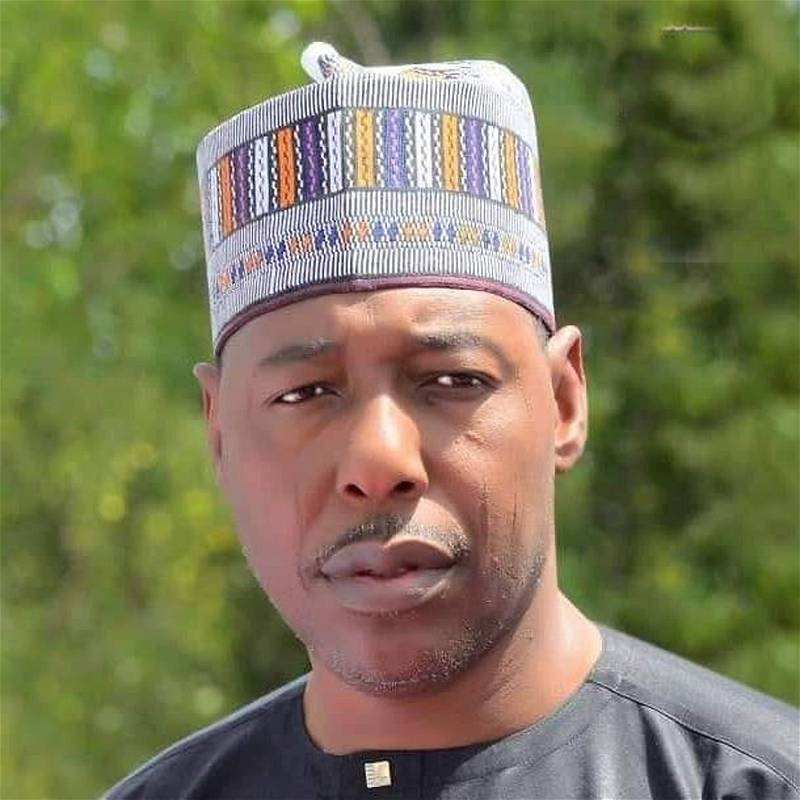On January 15, 2004, Media Trust Limited, publishers of Daily Trust, Weekend Trust, Sunday Trust, Aminiya in Hausa, Kano Chronicle and the annual Kilimanjaro pan-African journal, held its first Trust Annual Dialogue in promotion of dialogue as a means of solving Nigeria’s problems. Ten years on last month, the annual event, a “town hall” meeting of sorts, has become possibly the most important regular platform for discourse in the country about its sociology, politics and economy. The dialogue has certainly made January an important date in the nation’s political and media calendar.
The topic for the first dialogue was “The Nigerian Question: The Way Forward.” The chair was then Archbishop, now Cardinal, John Onaiyekan. The special guest of honour was President Olusegun Obasanjo, represented by his minister of Information, the youthful, dignified and somewhat reticent Chukwuemeka Chikelu. The panel of six, entirely from, or least of, the academia at one time or the other, paraded some of the country’s best egg-heads; Professors Bolaji Akinyemi, Jonah Elaigwu and Miriam Ikejiani-Clark, Drs Mahmud Tukur and Usman Bugaje and Messrs Kanu Agabi and Pharaoh Okadigbo.
All six were agreed that the answer to the Nigerian question was, to use Dr Tukur’s words, a “proper federation” with a “de-concentrated” centre. They were also unanimous about the need for the country to remain one. However, predictably for a panel of egg-heads, they disagreed on how to achieve these objectives. For example, whereas both Akinyemi and Elaigwu advocated for a national conference, Agabi disagreed.
As special guest of honour Obasanjo, speaking through Chikelu, had asked, “When shall we move from the Nigerian question to the Nigerian answer?” The disagreement among the panellists about the means suggested that the time for Nigeria to become the answer remained in the distant future, if indeed it was not a mirage. Ten years hence it still seems that Nigeria has remained a question. This much is obvious from the fact that this year’s dialogue held last week – on January 23 – returned to the same theme of nation building as was the first.
Between the first dialogue and last week’s there were the second on reforming Nigeria’s economy, the third on corruption, the fourth on free and fair elections, the fifth on democracy in Africa, the sixth on how to restore faith in the country’s democracy, the seventh on African women in politics, the eighth on the challenges of good governance on the continent, and last year’s on politics and the media.
This year’s, as we all probably know, was chaired by the former president of Botswana, Mr Festus Mogae, who distinguished himself in office as honest, humble, transparent and accountable to his people. Trust could hardly have picked a better chair for a dialogue on how to build a nation. Similarly it could hardly have constituted a livelier, more rigorous and more eloquent panel; Bishop Mathew Hassan Kukah, Femi Falana, SAN, Dr. Sule Bello of Ahmadu Bello University’s History department and Ms. Ann-Kio Briggs, well-known as a champion of the rights of the people of her oil-rich but much abused Delta region.
Having attended virtually all the dialogues, the four liveliest, for me, were the third on corruption, the seventh on African women in politics, the ninth on politics and the media, and this year’s, if only for its context of the serious security threat posed to the unity and stability of the country not only by the Boko Haram insurgency but even more so by the brazen and unprecedented venality of government officials and their racketeering confederates in the private sector.
To begin with the third dialogue on corruption, Trust could hardly have found a better chairman and panellists for the topic. Retired Major-General Garba Aliyu Mohammed, the chair, I knew very well from our days in primary school in Kano in the late fifties and early sixties. The man served the country as military governor of Niger State and minister of works and left as clean as a whistle.
As for the panellists, didn’t it used to be said that the fear of Nuhu Ribadu’s Economic and Financial Crimes Commission was the beginning of wisdom? Controversy may surround the legitimacy of the commission and its selective use by President Obasanjo may have detracted from its integrity but few doubted the sincerity of Ribadu. Since his contrived departure by Obasanjo’s successor, the late Umaru Yar’adua, there is a general consensus that the EFCC has become a toothless bulldog.
The other two panellists, Major-General Ishola Williams, retired, and Professor Attahiru Jega had built their reputations as incorruptible Nigerians in the pursuit of their careers as an officer and gentleman and a brilliant and profound academic respectively.
For the general the story is told of how on the occasion of an army conference in the eighties one senior officer chided any officer who did not own a house by the time he was a Lt-Colonel as being irresponsible. This was apparently too much for General Williams who was present at the conference and at the time owned no house. He responded to his fellow general by saying that any officer who owned a house by the time he was a one-star general was a thief because it was hard to see how even on that rank one could own a house on one’s legitimate income. Not surprisingly the general went on to become the pioneer chairman of Transparent international (Nigeria).
As for Jega, the chairman of INEC, he came to the job highly recommended for his dogged fight with the federal authorities as probably the most celebrated president of the Academic Staff Union of Universities who refused all and every blandishment to give in.
Most Nigerians would agree with Jega’s assertion in his paper that “Corruption has become the second name of our country. It is all pervasive, it is brazen and it is simply unbelievable.” Among the few that would disagree is our president, Dr. Goodluck Jonathan. This much was clear from the way he rejected the cry by the officiating priest at the burial of General Owoye Azazi, a former National Security Adviser, who died along with Governor Patrick Yakowa of Kaduna State in an helicopter crash in Bayelsa State, that corruption had since become the problem with Nigeria.
“Corruption,” the president said in reply, “is not the cause of our problem. Nigeria has more institutions (now) that fight corruption…If Nigerians would change their attitudes you will realize that most of these issues attributed to corruption are not caused by corruption.” For evidence, he made the rather strange analogy with what he said some senior staff of our road safety corps told him, namely, that most accidents in the country occurred on our good roads. Apparently the logic was lost on our president that just as his belief that good roads have not been enough to stop accidents, and indeed have led to even more accidents, the existence of more institutions to fight corruption is not enough to deter corruption.
In any case his argument that attitude and not corruption is our problem begs the obvious question: attitude to what? True, corruption, even on the incredible scale of Nigeria’s, is not in itself alone the problem. There is probably as much corruption in, say India, China, Mexico and Italy, and even in America, as there is in our dear country. The difference is the attitude of each country towards the scourge. Whereas the corrupt in these other countries are punished, often very severely, in our country they are celebrated. It is this attitude of impunity by the corrupt that has kept this country in the terrible mess in which it has been, socially, politically and economically – and in whatever..ly you can think of.
All three panellists at the Trust third dialogue made this fundamental point. They also agreed that the solution was a change of attitude to corruption, especially by our leaders. So in a sense our president was right in saying attitude is the problem of the country, only that he failed to ask the logical question about what the subject of this terrible attitude is for the simple reason that attitude is a noun that needs an adjective to make any sense.



